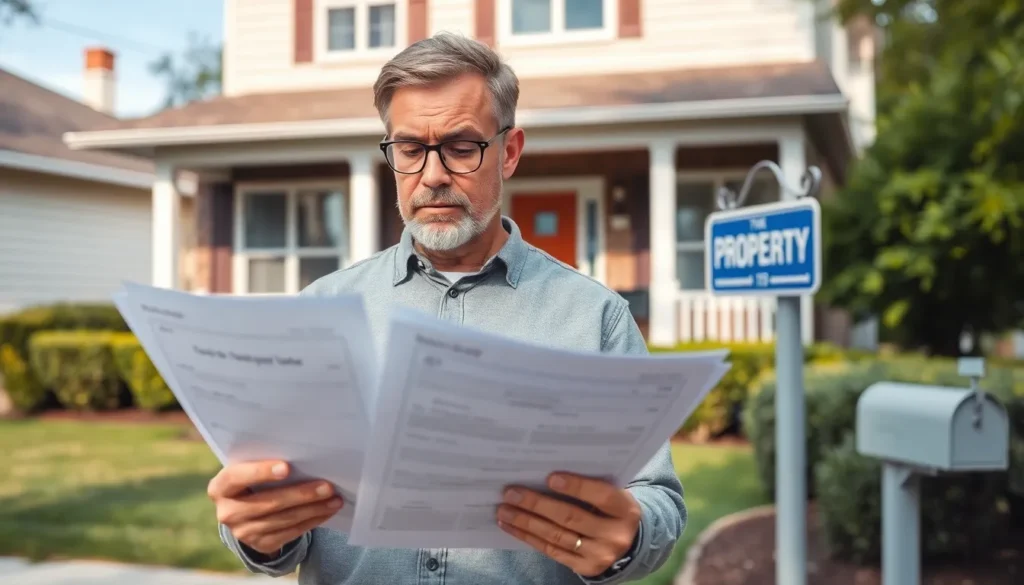Table of Contents
ToggleNavigating the rental market can feel like an Olympic sport, complete with hurdles and unexpected twists. Whether it’s a cozy studio or a sprawling apartment, negotiating the best deal can make all the difference. After all, who wouldn’t want to save a few bucks for that avocado toast habit?
Understanding Rental Negotiation Tactics
Negotiating rental agreements requires a strategic approach. Successful negotiations can lead to significant savings and favorable terms for tenants.
Importance of Negotiation in Rentals
Negotiation plays a crucial role in securing the best rental deal. It empowers tenants to advocate for their needs. Potential savings on rent or additional amenities often result from effective negotiation tactics. Understanding the market value of a property enhances a tenant’s ability to negotiate realistically. Confidence during discussions can lead to advantageous lease terms. Evaluating comparable properties can provide leverage during negotiations. Tenants benefit by promoting open communication with landlords and clearly articulating their perspectives.
Common Challenges in Rental Negotiations
Navigating the rental negotiation process presents several challenges. Many tenants face difficulties in determining fair rental prices. Landlords may adhere strictly to market rates, making negotiations tough. Emotional attachment to a desired property can cloud judgment. Limited availability of comparable rentals can restrict negotiation power. Uncertainty about lease terms often complicates discussions. Tenants sometimes underestimate the importance of timing in the rental cycle. Understanding these challenges equips tenants with strategies to overcome hurdles effectively.
Preparing for Negotiation

Preparation boosts confidence and effectiveness in rental negotiations. It involves gathering critical information and setting clear objectives.
Researching the Market
Market research provides invaluable insights into rental prices. Local rental listings reveal average costs, allowing tenants to identify fair pricing. Online platforms offer comparison tools for different neighborhoods. Historical trends indicate fluctuations, which may help in timing negotiations. Understanding comparable properties aids in presenting compelling arguments during discussions. Additionally, knowledge of upcoming developments in the area can enhance negotiating power, presenting a case for lower rent based on potential future inconveniences.
Setting Your Goals
Setting clear goals establishes a focused negotiation strategy. Defining priorities helps tenants determine what’s most important. Identifying a budget range assists in maintaining financial limits. Considering desired amenities leads to better deal outcomes. Establishing timelines for moving and lease terms clarifies expectations. Effective goal-setting allows tenants to evaluate offers critically, ensuring they align with financial and lifestyle needs. Ultimately, a solid list of negotiable aspects empowers individuals to articulate their requirements confidently during discussions.
Effective Tactics for Rental Negotiation
Effective negotiation tactics can significantly influence the rental experience. Using the right strategies builds trust and moves tenants closer to favorable terms.
Building Rapport with Landlords
Establishing a connection with landlords enhances negotiation outcomes. He or she can express genuine interest in the property and the landlord’s perspective. Building a friendly relationship may lead to concessions like reduced rent or additional amenities. Sharing personal stories about plans for the property can create a bond. Engaging in small talk about local events or the neighborhood fosters a comfortable atmosphere. A positive approach often encourages landlords to view tenants as reliable candidates. They may feel more inclined to consider requests favorably. Ultimately, trust can pave the way for more effective communication and collaboration.
Offering Compromises
Presenting compromises can create a win-win situation during negotiations. Suggesting flexible move-in dates or longer lease terms can appeal to landlords. He or she might agree to lower rent in exchange for a commitment to a longer stay. Offering to maintain the property or handle minor repairs also demonstrates willingness to cooperate. Each proposal can show the landlord that the tenant is considerate and responsible. Look for common ground and think creatively about potential benefits. Such strategies can lead landlords to feel valued and more open to negotiations. Exploring various options during the discussion enhances the chances of achieving favorable terms.
Post-Negotiation Strategies
Successful rental negotiations don’t end with an agreement. Proper follow-up strategies solidify the deal and maintain positive relations with landlords.
Finalizing the Agreement
Confirm all terms in writing to prevent misunderstandings later. Review the lease contract carefully, focusing on clauses related to rent, maintenance responsibilities, and any negotiated concessions. Make sure both parties sign the document. Clarity in the agreement reduces the likelihood of disputes down the road. Following this, establish a timeline for payments and set reminders to stay on track. Adhering to these timelines fosters trust and transparency.
Maintaining a Good Landlord Relationship
Fostering a positive relationship with the landlord can benefit both parties. Communicate openly about any issues or repairs needed in the property, ensuring to report concerns promptly. Attend to the agreed-upon terms of the lease, reinforcing reliability. Express gratitude for their cooperation during negotiations; a simple thank-you note or gesture can go a long way. Consider engaging in periodic check-ins to discuss any updates or concerns. Building this rapport encourages a harmonious living situation and may lead to favorable adjustments in the future.
Mastering rental negotiation tactics can significantly impact a tenant’s experience and financial well-being. By preparing thoroughly and adopting a strategic approach, individuals can navigate the rental market more effectively. Building rapport with landlords and being open to compromises can lead to favorable terms that benefit both parties.
It’s essential to remember that effective negotiation doesn’t end with an agreement. Keeping communication lines open and confirming all terms in writing helps avoid misunderstandings. With these strategies in hand, tenants can confidently advocate for their needs, ensuring a positive and rewarding rental experience.







